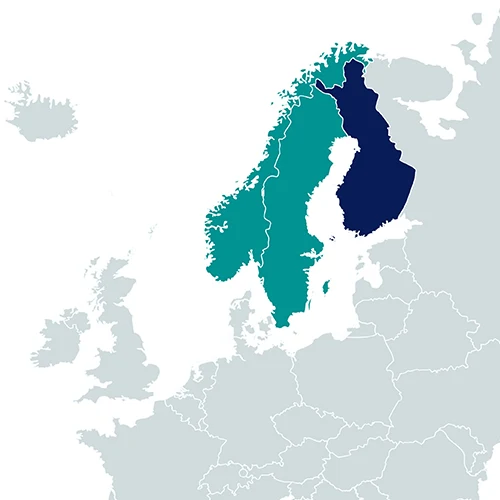2023-02-01 to 2025-12-31
Approx. 900 thsd. EUR
Jaakko Erkinaro
-
Natural Resources Unit, Natural Resources Institute Finland (LUKE), Oulu, Finland
-
Department of Arctic Ecology, Norwegian Institute of Nature Research, Tromsø, Norway
-
Norwegian Arctic University Museum and Academy of Arts, The Arctic University of Norway, Tromsø, Norway
-
Department of Political Science, Umeå University, Umeå, Sweden

Tackling biodiversity loss, including intraspecific diversity, is one of the greatest challenges of our time. Intraspecific diversity in economically and culturally important fish populations, i.e., variation in life history and genetic characteristics, is crucial as it provides resilience to disturbances, contributes to long-term sustainability under a changing climate, and is also a prerequisite for sustainable fisheries. The RecoSal project develops probabilistic, population-specific, target-based assessment tools for individual Atlantic salmon stocks and collaborative governance models for recovery of the extremely diverse salmon population complex of the large Teno river system in the Sámi homeland area in the northernmost Finland and Norway. The processes consider the multicultural setting in the Teno river valley and respect Indigenous knowledge and rights. The current depleted state of the salmon populations in the Teno is devastating for the local economies including the fishing tourism industry, and for the way of living and cultural tradition of the Sámi.
The overall objective of RecoSal is to strengthen the evidential knowledge base for collaborative governance and recovery of the diverse Atlantic salmon population complex of the Teno system. The more specific objectives include: 1) to develop a probabilistic model framework for evaluation of the status of salmon populations that incorporates the life cycle dynamics of various sub-populations, enables estimation of various sources of mortality, estimation of stock specific targets and spawner stocks, and investigations on how inclusion of indigenous and local knowledge could help improve the assessment methods; 2) to produce a first-generation participatory planning model for processes of collaborative, sustainable and socially acceptable salmon management in the Teno region and provide advice on its applicability in governance; and 3) to integrate biological and governance models in a transdisciplinary framework and ensure that co-produced knowledge meet the formal decision requirements on Teno salmon management in a useful form for decision-makers, stakeholders, and Indigenous and local communities, i.e., the Living Lab participants.
Development of the population-specific assessment model will have the potential of informing and making impact on robust stock assessment processes, advice provision and policymaking for Atlantic salmon, both in the Teno river and internationally. The impact of novel forms of collaboration will extend from local and national management bodies to the bilateral governance. RecoSal will provide Finnish, Norwegian and Sámi societies with participatory processes that prevent conflict situations and deadlocks of negotiations that endanger both salmon biodiversity and local and indigenous communities. Dissemination, exploitation and communication activities will be organized beyond the state-of-art, as multilevel and target-group-specific activity that will take language, power, interest and culture differences into account. Our strategy will define how results are shared with stakeholders, end-users, and national and international actors, as well as how they will reach the general public and media. The overarching objective is to achieve maximum impact of the research findings. Exploitation measures aim primarily at directly using the research results to support decision-making in the local context and at national level in Finland and Norway.